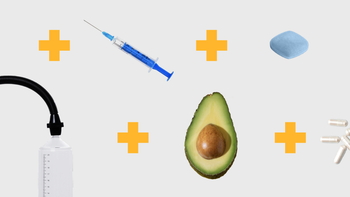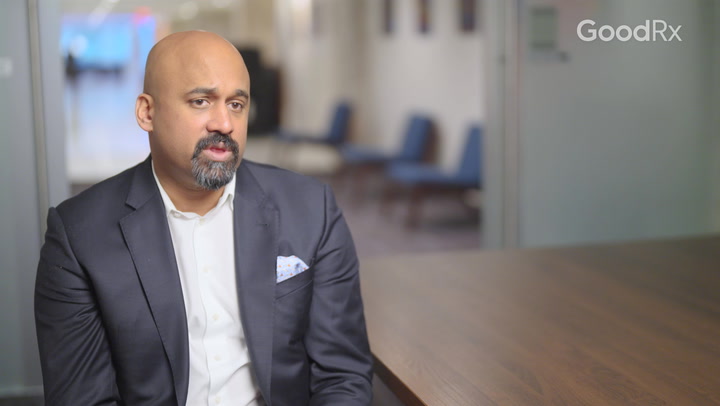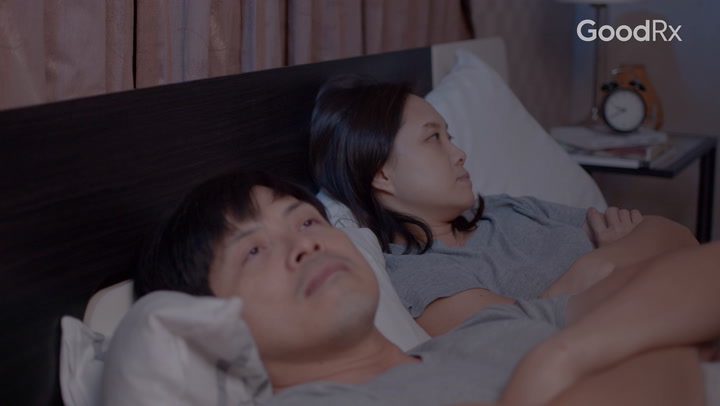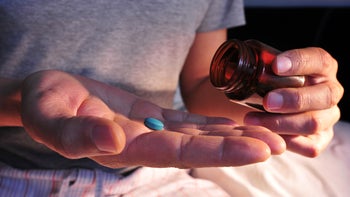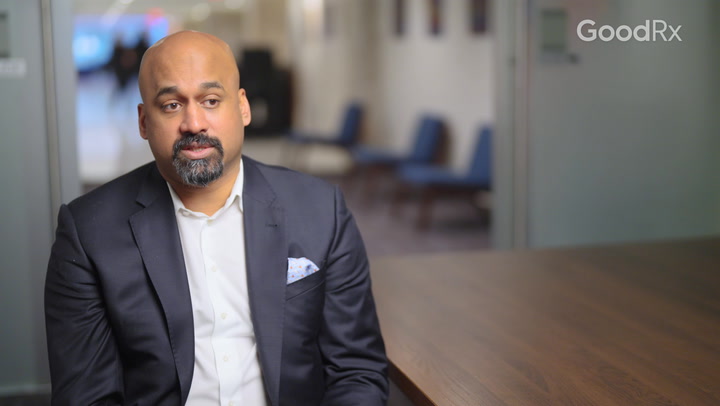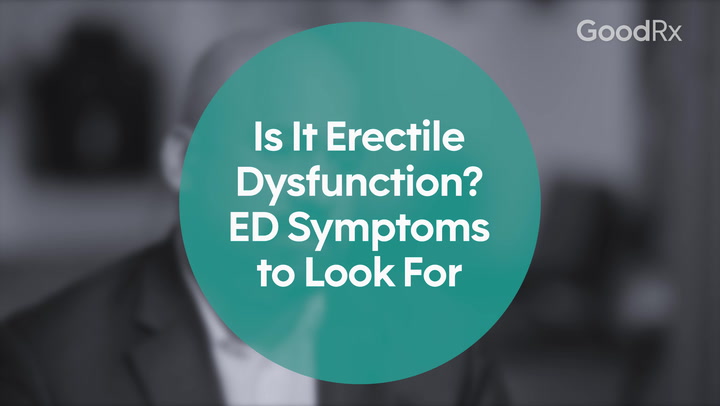
Which Antidepressants Are Least Likely to Cause Erectile Dysfunction?
Key takeaways:
Certain medications, including many antidepressants, are thought to cause about 25% of all erectile dysfunction (ED) cases.
Bupropion (Wellbutrin XL, Wellbutrin SR) and mirtazapine (Remeron) are first-choice antidepressants to try if you’re experiencing ED from another antidepressant.
If you’re experiencing ED or other sexual side effects from an antidepressant, don’t stop taking it without speaking to a healthcare professional. Abruptly stopping an antidepressant without a plan could lead to withdrawal symptoms.
Table of contents
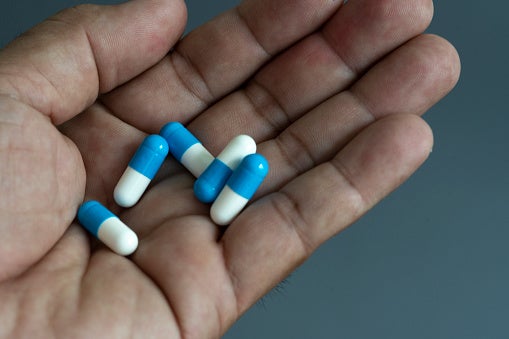
Sexual side effects — including erectile dysfunction (ED) — are common with certain medications. Some of the most commonly prescribed antidepressants, such as selective serotonin reuptake inhibitors (SSRIs) and serotonin and norepinephrine reuptake inhibitors (SNRIs), are no exception.
Not all antidepressants are the same, though. Some are more likely to cause sexual side effects than others. Let’s take a closer look.
Which antidepressants are known to cause sexual side effects?
SSRIs, SNRIs, and tricyclic antidepressants (TCAs) are the antidepressants that tend to cause the most sexual side effects. Even so, SSRIs and SNRIs are first-choice antidepressants that many people turn to.
Fast, affordable ED treatment from GoodRx
Build a personalized treatment plan and get erectile meds delivered discreetly. Subscriptions start at just $18/mo.

GoodRx is NOT insurance. Cancel anytime. GoodRx Health information and resources are reviewed by our editorial staff with medical and healthcare policy and pricing experience. See our editorial policy for more detail. We also provide access to services offered by GoodRx and our partners when we think these services might be useful to our visitors. We may receive compensation when a user decides to leverage these services, but making them available does not influence the medical content our editorial staff provides.
You may have heard about Zoloft (sertraline) and Lexapro (escitalopram) sexual side effects, but other SSRIs also have this risk. This includes:
Paroxetine (Paxil)
Fluoxetine (Prozac)
Citalopram (Celexa)
SNRI medications like Cymbalta (duloxetine) can also have sexual side effects. Other SNRIs include:
Venlafaxine (Effexor XR)
Desvenlafaxine (Pristiq)
Levomilnacipran ER (Fetzima)
Common TCAs with sexual side effects include:
Clomipramine (Anafranil)
Imipramine
If you’re taking an SSRI, SNRI, or TCA but find the sexual side effects to be bothersome, lowering your dose might help. Another option is switching to a different medication to see if its side effects are easier to tolerate.
What sexual side effects are common while taking antidepressants?
Generally speaking, the most common sexual side effects of antidepressants include:
A decreased sex drive (low libido)
Altered orgasms, including less intense orgasms, delay in orgasm, or no orgasm
ED (difficulty getting or maintaining an erection for satisfying sex)
These symptoms aren’t universal, though. Sexual side effects from antidepressants can vary for everyone. They also depend on the specific medication and dose used.
Is your antidepressant working? Here are some telltale signs that you’re on the right track.
Switching antidepressants: If your antidepressant’s performance has you wanting more, there are a few things you should know before switching to a new medication.
Want to treat erectile dysfunction (ED)? Pharmacists and physicians compare the best ED treatment options so you can make an informed choice about your care.
Quiz: Is It Erectile Dysfunction?
Which antidepressants are least likely to cause ED?
Many antidepressants are available. If medications such as SSRIs, SNRIs, or TCAs, are hard to tolerate, you have alternatives to consider. Next, we discuss six antidepressants that are less likely to cause ED.
1. Bupropion
Bupropion (Wellbutrin XL, Wellbutrin SR) is an atypical antidepressant used for depression and seasonal affective disorder. It’s an oral tablet that works by increasing the amount of dopamine and norepinephrine in the brain.
Bupropion is often the go-to medication for people who are experiencing ED or other sexual side effects from SSRIs. It also works just about as well as SSRIs for depression. Bupropion is sometimes used in addition to SSRIs to treat SSRI-induced sexual dysfunction, but it can also be taken by itself.
The frequency of sexual side effects with bupropion varies by study. But it’s generally not linked to ED and causes fewer sexual side effects than many other antidepressants.
2. Mirtazapine
Mirtazapine (Remeron) is another atypical antidepressant for depression. It raises the amount of serotonin and norepinephrine in the brain.
Similar to bupropion, this oral tablet works about as well as SSRIs. Plus, multiple studies have found that sexual side effects are generally less common with mirtazapine.
3. Vortioxetine
Vortioxetine (Trintellix) is an atypical antidepressant that raises serotonin levels in the brain. It’s a tablet used to treat depression.
Vortioxetine is a newer medication that’s currently only available as a brand-name medication. In its clinical trials, vortioxetine’s sexual side effects were compared to placebo (a pill with no medication in it). The medication caused slightly more sexual side effects than placebo for both men and women.
However, another study compared vortioxetine’s sexual side effects to escitalopram, an SSRI. This study found that vortioxetine worked similarly to escitalopram while causing fewer sexual side effects.
4. Vilazodone
Vilazodone (Viibryd) is another atypical antidepressant that raises serotonin levels in the brain. It’s a tablet used to treat depression.
In clinical trials, vilazodone didn’t cause many sexual side effects. Up to 3% of men taking vilazodone experienced ED compared to 1% taking placebo. Up to 1% of women taking vilazodone experienced abnormal orgasms. Women who took the placebo did not experience abnormal orgasms.
Although a low rate of sexual side effects is promising for vilazodone, it’s not yet incorporated into treatment guidelines for people who are experiencing sexual side effects from antidepressants.
5. Selegiline
Selegiline (Emsam) is a monoamine oxidase inhibitor (MAOI). This type of antidepressant works by stopping the breakdown of brain chemicals like serotonin, norepinephrine, and dopamine. It’s a once-daily patch that’s applied to the skin.
In clinical trials, sexual side effects from selegiline patches were comparable to placebo. Less than 1% of people who used the patches experienced ED. Abnormal ejaculation, lower sex drive, and lack of orgasm were also rare.
Although MAOIs like selegiline may work as well as other antidepressants — and sexual side effects may be more tolerable — selegiline is often a last-choice option due to safety risks.
The oral form of selegiline may also be more likely to cause sexual side effects than the patch, but the two formulations haven’t been compared directly.
6. Nefazodone
Nefazodone is another oral atypical antidepressant. It increases levels of serotonin and norepinephrine in the brain.
Nefazodone does not commonly cause sexual side effects, including ED. Although nefazodone can be an option for some people who experience sexual dysfunction, it’s often avoided because of the risk of liver damage.
Should you stop taking your antidepressant if it causes ED?
You shouldn’t stop taking your antidepressant without speaking to a healthcare professional first.
If you think your medication may be causing ED, you have a couple of options to consider:
Wait it out: Sexual side effects such as ED often improve within up to 8 weeks of starting a new antidepressant. Your symptoms may gradually get better on their own.
Seeking help: If your symptoms don’t go away with time, schedule an appointment with a healthcare professional. They may want to lower your medication dose or switch you to a different antidepressant. They may also offer to prescribe a medication to directly treat ED itself, such as sildenafil (Viagra) or tadalafil (Cialis).
Just make sure that you don’t stop taking your antidepressant abruptly. Doing so could cause antidepressant withdrawal symptoms. Withdrawal symptoms can subside with time, but may include:
Dizziness
Nausea
Fatigue
Muscle aches
Restlessness
Anxiety
Irritability
“Electric shock” sensations
If you want or need to stop your antidepressant, your prescriber will likely recommend slowly lowering your dose over time to help you avoid withdrawal symptoms.
What else could cause ED?
Antidepressants aren’t the only potential ED culprit. Many other medications, such as blood pressure medications and opioids, could also be at fault.
Although medications cause about 25% of all ED cases, other factors can play a role too:
Health conditions, such as diabetes, heart disease, and nerve disorders
Emotional causes, such as stress, depression, and anxiety
Smoking
Substance use, including amphetamines, heroin, and ecstasy
Frequently asked questions
No, Zoloft’s sexual side effects aren’t permanent. They often improve or disappear a few weeks after starting or stopping the medication. However, not everyone reacts to medications the same way. Reach out to your prescriber if sexual side effects are lingering longer than expected.
Antidepressants, especially those that affect serotonin levels like SSRIs, can make it difficult to climax due to their impact on sexual function. These medications can reduce sex drive, arousal, and the ability to reach orgasm (in both men and women). This is largely because serotonin can interfere with the body's natural processes that lead to orgasm.
The bottom line
Some of the most widely-used antidepressants are known to cause sexual side effects, including erectile dysfunction (ED). For people looking for an antidepressant without sexual side effects, medications such as bupropion (Wellbutrin XL, Wellbutrin SR) and mirtazapine (Remeron) are potential options to consider.
If you think your antidepressant is causing ED, don’t stop taking it until you speak with a healthcare professional. Stopping antidepressants abruptly can lead to side effects. Your prescriber can help you lower your dose, switch to a different medication, or slowly stop your antidepressant altogether.
Why trust our experts?



References
Allergan. (2023). Viibryd- vilazodone hydrochloride tablet [package insert]. DailyMed.
American Psychological Association. (2019). APA clinical practice guideline for the treatment of depression across three age cohorts.
Apotex. (2024). Selegiline hydrochloride capsule [package insert]. DailyMed.
Atmaca, M. (2020). Selective serotonin reuptake inhibitor-induced sexual dysfunction: Current management perspectives. Neuropsychiatric Disease and Treatment.
Bang-Ping, J. (2009). Sexual dysfunction in men who abuse illicit drugs: A preliminary report. The Journal of Sexual Medicine.
Bryant Ranch Prepack. (2022). Nefazodone hydrochloride tablet [package insert].
Gelenberg, A. J., et al. (2010). Practice guideline for the treatment of patients with major depressive disorder. American Psychological Association.
Higgins, A., et al. (2010). Antidepressant-associated sexual dysfunction: impact, effects, and treatment. Drug, Healthcare and Patient Safety.
Jacobsen, P. L., et al. (2015). Effect of vortioxetine vs. escitalopram on sexual functioning in adults with well-treated major depressive disorder experiencing SSRI-induced sexual dysfunction. The Journal of Sexual Medicine.
Lipman, K., et al. (2024). Improvement in selective serotonin reuptake inhibitor-associated sexual dysfunction with buspirone: Examining the evidence. Cureus.
Miller, T. A. (2000). Diagnostic evaluation of erectile dysfunction. American Family Physician.
Montejo, A. L., et al. (2019). Management strategies for antidepressant-related sexual dysfunction: A clinical approach. Journal of Clinical Medicine.
Mylan Specialty. (2020). Emsam- selegiline patch [package insert].
Takeda Pharmaceuticals America. (2025). Trintellix- vortioxetine tablet, film coated [package insert]. DailyMed.

